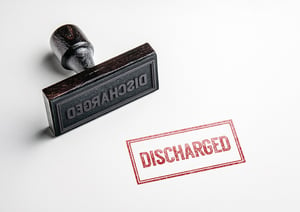 Tax debt is a major reason that people file for bankruptcy. Despite the fact that the State and Federal taxing authorities (i.e. the IRS and MN Department of Revenue) are often willing to offer payment plans to assist people with this type of debt, owing a large amount of taxes can create both a financial and emotional burden. This is especially true when one has other expenses, debts and bills with which to contend.
Tax debt is a major reason that people file for bankruptcy. Despite the fact that the State and Federal taxing authorities (i.e. the IRS and MN Department of Revenue) are often willing to offer payment plans to assist people with this type of debt, owing a large amount of taxes can create both a financial and emotional burden. This is especially true when one has other expenses, debts and bills with which to contend.
Bankruptcy can often provide a great deal of assistance for those dealing with lots of tax debt.
How tax debt will be treated in a bankruptcy depends on the nature of the debt and the type of bankruptcy that is filed. While recent tax debt is generally not dischargeable through bankruptcy, some older debt that meets certain requirements is dischargeable. First of all, only income tax debt is dischargeable (so not property tax debt, for example).
Second, the tax returns for the year that the taxes were incurred must have been due, at least, three years prior to the date the bankruptcy was filed. For example, if a person incurs income tax liability for the 2017 tax year, and tax returns for that year were due on April 15th of 2018, their tax debt may be dischargeable if they file their petition by April 15th of 2021, or later.
Third, the person must have filed their tax returns more than two years prior to the date of filing bankruptcy. Filing taxes with an allowed extension is fine but this requirement is not met when the government ends up filing the returns because you failed to do so yourself.
Fourth, the tax liability will only be dischargeable if it has not been assessed by the taxing authority within the 240 day (8 month) period prior to the date the bankruptcy has been filed. If a person does not receive any formal notice that the tax liability has been assessed during this period, it is a pretty good indicator that no assessment has been made. Only when all of these four requirements are meet, will the tax debt be deemed discharged.
Whether the tax debt meets these requirements for being dischargeable is important for determining which type of bankruptcy would be most beneficial for a person to file. If most, or all, of the tax debt is dischargeable, it may be a good idea for a person to file a chapter 7 bankruptcy to get the tax debt wiped out quickly (typically 3 to 4 months after the filing date), assuming that the person meets the income requirements to file a chapter 7 and there are no other issues that would make chapter 13 bankruptcy a better option.
If the tax liability is mostly non-dischargeable, a chapter 13 may be a better option. Non-dischargeable tax debt is considered “priority debt,” and must be paid, in full, in a chapter 13 repayment plan. Any portion of the debt that is dischargeable (i.e. non-priority) will be treated like any other unsecured debt, and typically, will only be paid, in part, if at all, in the plan.
The remainder of the non-priority tax debt will be discharged after the chapter 13 plan is completed. The taxing authority will assess whether the tax liability is priority debt, or not, and will state so in the claim it files with the bankruptcy court. Of course, the debtor has the right to object to this claim if they disagree with that assessment and the bankruptcy court may have to ultimately decide this issue.
A big advantage of repaying tax debt in a chapter 13 is that the person is fully protected from the taxing authority by the court, by the automatic stay, throughout the entire bankruptcy plan, just like they are from any other creditor. Once their repayment plan is confirmed by the court, the debtor just needs to make their monthly payments to the trustee and no longer needs to worry about negotiating with the IRS or State taxing authority.
CALL NOW FOR A FREE STRATEGY SESSION FROM A MN BANKRUPTCY LAWYER AT LIFEBACK LAW FIRM
This is a very generalized and brief overview of the law relating to tax debt and how it is handled in bankruptcy. When considering filing for bankruptcy, it is a very good idea to consult with an experienced bankruptcy attorney to determine whether, and how, a bankruptcy can best help you with your tax debt. See us at LifeBackLaw.com!


